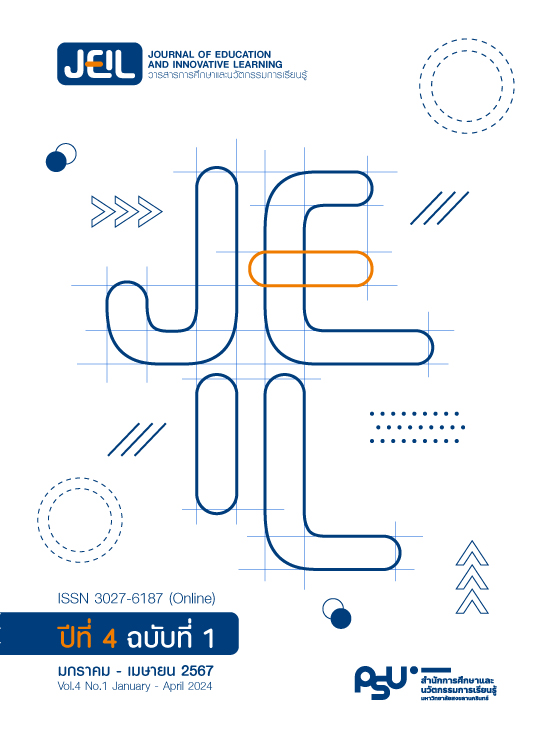ผลของการจัดการเรียนรู้โดยใช้กรณีศึกษาเป็นฐานต่อทักษะการคิดอย่างมีวิจารณญาณในนักศึกษาพยาบาล
Main Article Content
บทคัดย่อ
การวิจัยกึ่งทดลองนี้มีวัตถุประสงค์เพื่อเปรียบเทียบทักษะการคิดอย่างมีวิจารณญาณในนักศึกษาพยาบาลก่อนและหลังได้รับการจัดการเรียนรู้โดยใช้กรณีศึกษาเป็นฐาน และศึกษาความพึงพอใจของนักศึกษาพยาบาลต่อการจัดการเรียนรู้โดยใช้กรณีศึกษาเป็นฐาน กลุ่มตัวอย่าง คือ นักศึกษาพยาบาลชั้นปีที่ 3 มหาวิทยาลัยเมธารัถย์ จำนวน 105 คน ที่เรียนรายวิชาการพยาบาลสุขภาพจิตและจิตเวช เครื่องมือที่ใช้ในการวิจัย ได้แก่ แผนการจัดการเรียนรู้โดยใช้กรณีศึกษาเป็นฐาน 5 ขั้นตอน เอกสารประกอบการสอน แบบประเมินทักษะการคิดอย่างมีวิจารณญาณ และแบบประเมินความพึงพอใจต่อการจัดการเรียนรู้โดยใช้กรณีศึกษาเป็นฐาน วิเคราะห์ข้อมูลโดยใช้สถิติเชิงพรรณนา ได้แก่ ค่าเฉลี่ย ส่วนเบี่ยงเบนมาตรฐาน และสถิติ pair t-test ผลการศึกษา พบว่าค่าเฉลี่ยของคะแนนทักษะการคิดอย่างมีวิจารณญาณของนักศึกษาพยาบาลหลังได้รับการจัดการเรียนรู้โดยใช้กรณีศึกษาเป็นฐานสูงกว่าก่อนได้รับการจัดการเรียนรู้โดยใช้กรณีศึกษาเป็นฐานอย่างมีนัยสำคัญทางสถิติที่ระดับ .05 ระดับความพึงพอใจของนักศึกษาพยาบาลหลังได้รับการจัดการเรียนรู้โดยใช้กรณีศึกษาเป็นฐานในภาพรวมทุกด้านอยู่ในระดับมากที่สุด (mean=4.72, S.D.=0.24) การจัดการเรียนรู้โดยใช้กรณีศึกษาเป็นฐานสามารถพัฒนาทักษะการคิดอย่างมีวิจารณญาณในนักศึกษาพยาบาลได้ จึงควรนำรูปแบบการจัดการเรียนรู้นี้ไปประยุกต์ใช้ในรายวิชาอื่นเพื่อพัฒนาทักษะการคิดอย่างมีวิจารณญาณให้นักศึกษาพยาบาลอย่างต่อเนื่อง
Article Details

อนุญาตภายใต้เงื่อนไข Creative Commons Attribution-NonCommercial-NoDerivatives 4.0 International License.
เนื้อหาและข้อมูลในบทความที่ตีพิมพ์ในวารสารการศึกษาและนวัตกรรมการเรียนรู้ ถือเป็นข้อคิดเห็นและความรับผิดชอบของผู้เขียน ซึ่งกองบรรณาธิการวารสาร ไม่จำเป็นต้องเห็นด้วยหรือร่วมรับผิดชอบใด ๆ และไม่สงวนสิทธิ์การคัดลอกบทความเพื่อใช้ประโยชน์ทางวิชาการ แต่ให้อ้างอิงข้อมูลแสดงที่มาของบทความทุกครั้งที่นำไปใช้ประโยชน์
เอกสารอ้างอิง
Ar-yuwat, S., Sangkamkul, C., & Kitreerawutiwong, K. (2019). The effects of problem-based learning on critical thinking among baccalaureate nursing students. Journal of Research in Nursing-Midwifery and Health Sciences, 39(2), 87-97. [in Thai]
Azizi-Fini, I., Hajibagheri, A., & Adib-Hajbaghery, M. (2015). Critical thinking skills in nursing students: a comparison between freshmen and senior students. Nursing and Midwifery Studies, 4(1), e25721. doi:10.17795/nmsjournal25721
Bormann, S. von., Khumkom, S., Khaobunmasiri, S., Wajanatinapart, P., & Jai-ai, R. (2022). Effects of team-based learning on critical thinking, problem solving skills, and attitudes towards learning in second-year nursing students. Nursing Journal of The Ministry of Public Health, 32(2), 22-35. [in Thai]
Burucu, R., & Arslan, S. (2021). Nursing students’ views and suggestions about case-based learning integrated into the nursing process: A qualitative study. Florence Nightingale Journal of Nursing, 29(3), 371-378. doi:10.5152/FNJN.2021.20180
Chang, M. J., Chang, Y. J., Kuo, S. H., Yang, Y. H., & Chou, F. H. (2011). Relationships between critical thinking ability and nursing competence in clinical nurses. Journal of Clinical Nursing, 20(21-22), 3224-3232. doi:10.1111/j.1365-2702.2010.03593.x
Fesler-Birch, D. M. (2005). Critical thinking and patient outcomes: a review. Nursing Outlook, 53(2), 59-65. doi:10.1016/j.outlook.2004.11.005
Holland, C., & Ulrich, D. (2016). Critical thinking cards: An innovative teaching strategy to bridge classroom knowledge with clinical decision making. Teaching and Learning in Nursing, 11(3), 108-112. doi:10.1016/j.teln.2016.01.005
Hong, S., & Yu, P. (2017). Comparison of the effectiveness of two styles of case-based learning implemented in lectures for developing nursing students' critical thinking ability: A randomized controlled trial. International Journal of Nursing Studies, 68, 16-24. doi:10.1016/j.ijnurstu.2016.12.008
Khorphon, S., Pankeaw, J., Sarobol, T., Choopun, K., Chomchan, S., & Boonlue, N. (2019). Promoting of critical thinking skills in nursing students through reflective thinking. Nursing Journal CMU, 46(1), 87-101. [in Thai]
Kim, N. H., Park, J. Y., & Jun, S. E. (2015). The effects of case-based learning (CBL) on learning motivation and learning satisfaction of nursing students in a human physiology course. Journal of Korean Biological Nursing Science, 17(1), 78-87. doi:10.7586/jkbns.2015.17.1.78
Kuluski, K., Ho, J. W., Hans, P. K., & Nelson, M. (2017). Community care for people with complex care needs: bridging the gap between health and social care. International Journal of Integrated Care, 17(4), 2. doi:10.5334/ijic.2944
Kusoom, W., & Hengyotmakt, A. (2019). The effects of case-based learning on nursing students’ knowledge retention. Academic Journal Bangkokthonburi University, 8(1), 187-196. [in Thai]
Li, S. S., Ye, X. C., & Chen, W. T. (2019). Practice and effectiveness of "nursing case-based learning" course on nursing student's critical thinking ability: A comparative study. Nurse Education in Practice, 36, 91-96. doi:10.1016/j.nepr.2019.03.007
McLean, S. F. (2016). Case-based learning and its application in medical and health-care fields: a review of worldwide literature. Journal of Medical Education and Curricular Development, 3, JMECD.S20377. doi:10.4137/JMECD.S20377
Sannathimmappa, M., Nambiar, V., & Arvindakshan, R. (2019). Implementation and evaluation of case-based learning approach in microbiology and immunology. International Journal of Medical Research & Health Sciences, 8(1), 1-5.
Sapeni, M. A. A. R., & Said, S. (2020). The effectiveness of case-based learning in increasing critical thinking of nursing students: A literature review. Enfermería Clínica, 30(2), 182-185. doi:10.1016/j.enfcli.2019.07.073
Shohani, M., Bastami, M., Gheshlaghi, L. A., & Nasrollahi, A. (2023). Nursing student's satisfaction with two methods of CBL and lecture-based learning. BMC medical education, 23(1), 48. doi:10.1186/s12909-023-04028-3
Srisawad, K., & Chaleoykitti, S. (2017). Critical thinking of nursing students. Royal Thai Army Medical Journal, 70(3), 169-174. [in Thai]
Tsekhmister, Y. (2023). Effectiveness of case-based learning in medical and pharmacy education: A meta-analysis. Electronic Journal of General Medicine, 20(5), em515. doi:10.29333/ejgm/13315
Watson, G., & Glaser, E. M. (1964). Watson-glaser critical thinking appraisal. New York: Harcourt, Brace, and World.
Williams, B. (2005). Case based learning-a review of the literature: is there scope for this educational paradigm in prehospital education?. Emergency Medicine Journal, 22(8), 577-581. doi:10.1136/emj.2004.022707
Yurdanur, D. (2016). Critical thinking competence and dispositions among critical care nurses: a descriptive study. International Journal of Caring Sciences, 9(2), 489-495.
Zuriguel Pérez, E., Lluch Canut, M. T., Falcó Pegueroles, A., Puig Llobet, M., Moreno Arroyo, C., & Roldan Merino, J. (2015). Critical thinking in nursing: scoping review of the literature. International Journal of Nursing Practice, 21(6), 820-830. doi:10.1111/ijn.12347


